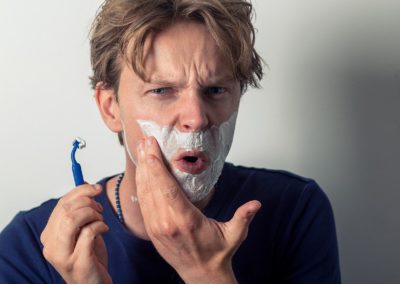How To Get Rid Of Frizz: Frizzy Hair Tips

written by nail expert Jess Rowley
Topics we've covered
How To Get Rid Of Frizz: Frizzy Hair Tips:
Is your frizz getting you down? Does it feel like whatever product you use doesn’t seem to work, and the humidity ruins your hairstyle the second you step outside?
Trust me, girl, you’re not alone.
When your hair is frizzy 9 times out of 10, it is trying to tell you that it needs hydration. The most common cause of frizz is lack of moisture, but when it is humid, frizz is unavoidable.
Learning your hair porosity type and working out what products your hair likes is the best step towards taming frizz, but finding the right products isn’t always easy.
Plus, for high porosity hair, frizz is not your friend.
Dryness isn’t the only culprit though, heat damage, humid weather, and product buildup also have a lot to say about frizz.
But don’t let that put you off. I have done all the research, spoke to specialists, and tried a few techniques to tame frizz to make things easier for you.
Andddd… I’ve broken it all down into a simple guide with simple solutions that you can implement into your everyday hair care routine.
Say goodbye to frizz for good!
What Causes Frizz?
Before we delve into how to get rid of frizz or reduce frizz, we need to get to the bottom of what frizz is and what causes frizz.
Frizzy hair does not align with the surrounding hairs but stands up or curls independently. This leaves a fuzzy, irregular texture. It doesn’t look smooth or neat in some hairstyles.
The main cause of frizz is lack of moisture in the hair; when your hair is dry, it absorbs moisture from the hair, which creates frizz. So if your hair is dry and humid outside, it is the perfect recipe for frizz.
Here are some other causes of frizz:
Vigorous towel drying:
While many of us think that drying your hair with a towel is better than drying your hair with a hairdryer, using a rough towel can cause friction and result in frizz.
Regular towels can actually dry oils out from your scalp, which ends up resulting in frizz. Instead, I would reccomend switching to a microfibre towel or cotton t-shirt to dry your hair.
Over-brushing:
Brushing your hair too much or too roughly can result in breakage; tugging at your strands can cause breakage and split ends, making them more prone to frizz.
If you have curly hair, I will reccomend using a tangle teaser or a wide-tooth comb and comb through your hair while sopping wet and with a leave-in conditioner.
This will help ease through tangles and will prevent tugging on your hair, causing breakage. Also, be patient and don’t snag knots, it may be time, but it is worth it.
For straight or wavy hair, I would reccomend investing in a natural bristle brush. This will gently brush through knots and prevent breakage and frizz.
Heat damage:
If you excessively apply heat to your hair without a heat protectant, this may be the top cause of your frizz. When your hair is damaged by heat, it strips the strands of moisture.
This will leave the ends dry, brittle, and most prone to frizz.
Having a hot shower:
There’s nothing more relaxing than a hot, steamy shower, especially in the winter, but having hot showers can also be a cause of your frizz.
Hot water strips your scalp and hair of natural oils that keep your hair moisturized and shiny; this lack of moisture makes your hair more prone to frizz.
Don’t worry. It’s an easy fix; just turn down the temperature when washing your hair.
Humidity:
As we all well know, humidity is the top culprit for frizz, and while it is impossible to control the climate you live in, you can protect your locks with a humidity spray designed to lock in moisture.
When your hair is dry, it seeks moisture from the humid air, which eventually causes frizz, so keeping your hair hydrated is the best way to combat this.
Hair porosity:
The porosity of your hair also has a lot to say when it comes to frizz.
Low porosity hair struggles to soak up moisture because the cuticle is flat-lying; products tend to sit on top of the hair rather than soak into the hair, making it prone to frizz.
The best way to open up this cuticle is with heat; using a heated cap is particularly effective or hot water; this will open the cuticle and help absorb moisture.
Luckily once moisture has soaked into the cuticle, low porosity hair will hold onto the moisture, so if you care for this hair type correctly, this should also help with frizz.
The most frizz-prone hair type is high porosity hair; this is because the cuticle is raised, so while moisture is easily absorbed, this hair type struggles to retain moisture.
It is recommended that you do an ice-cold rinse after cleansing and moisturizing your hair with treatment or conditioner; this should help close the cuticle and prevent frizz.
I would reccomend you maintain a good deep conditioning routine with lots of protein to maintain moisture and prevent frizz. Some oils are really good at sealing in moisture too.
I explain this in more detail in my full guide here.
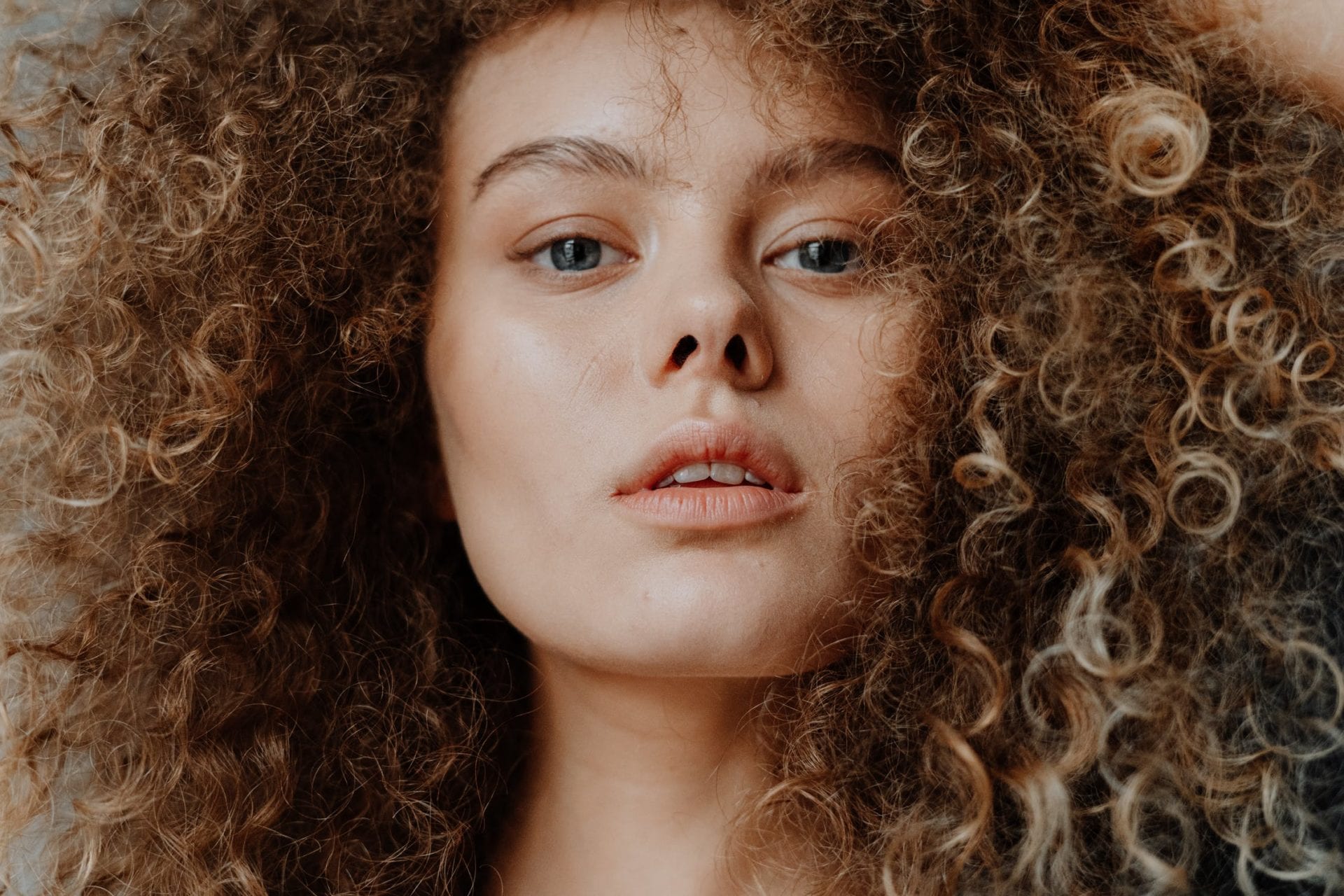
How To Get Rid Of Frizzy Hair: Easy Step By Step:
Now we know the top causes of frizz, we can prevent frizz by working out what causes it and where the problem areas are.
Stop using sulfates:
Sulfate shampoos are quite harsh on any hair type and one of the top culprits of frizz as they strip the natural oils from your hair and dry out the ends.
If you have curly hair, you most likely already know why using sulfates is bad for your hair, but even for straight hair, you should switch to a sulfate-free shampoo if you suffer from frizz.
Sadly, these chemicals can be found in most drugstore shampoo and conditioners, you may need to pay a little more for your shampoo, but the results are definitely worth it.
My favorite budget-friendly options have to be Maui or SheaMoisture, they’re not only free of sulfates, but they are free from other harsh ingredients like parabens and phthalates.
Believe me; they’re not just for curly hair; they’re also brilliant at taming frizz too.
I would reccomend going for a gentle sulfate-free shampoo that is free from harsh chemicals that can strip your scalp; your hair will feel more hydrated and less frizzy.
However, along with cutting out sulfates, you will also need to cut out silicones and waxy ingredients; without sulfate shampoo to remove them, these ingredients build up on your hair and can be very damaging to your scalp.
Silicones are like plastic and sit on top of your hair, leaving it looking greasy and dry because moisture cannot pass through.
Wash your hair less:
Excessively washing your hair is another cause of frizz because it strips the natural oils from your scalp, drying out the ends of your hair and causing frizz.
If you struggle with a greasy scalp, I will reccomend investing in a co-wash in between your shampoos and only shampooing once or twice a week maximum.
You should wash your scalp and massage your scalp for at least 60 seconds with water to get rid of sweat buildup, causing great and on the mid-lengths and ends wash your hair using a cleansing conditioner.
This will help cleanse your scalp from sweat and oil buildup without drying out the ends of your hair, preventing frizz.
Rinse your hair with cold water:
When washing your hair, I would reccomend opting for a cooler temperature, as I aid earlier hot water can strip your natural oils and cause frizz.
At the end of your wash and condition, I would also reccomend (especially if you have high porosity hair) rinsing with cool water.
This will help seal in moisture and close the cuticle, leaving your hair feeling hydrated and moisturized for longer.
After each wash, just washing your hair with cool water will make a world of difference for your frizz.
Comb hair while the conditioner is on:
Now I know usually brushing your hair while wet is a no-no unless you have curly hair but combing the conditioner through the ends of your hair with a wide-tooth comb actually really helps tame frizz.
It helps gently ease knots and tangles without tugging on the ends of your hair, preventing breakage and frizz.
Unless you are combing through your hair with conditioner, leave-in conditioner, or detangling spray, you shouldn’t brush straight hair while wet. For curly hair, there is an exception as you cannot brush it while dry.
Regular hair masks/treatments
With frizzy hair, hydration is key so upkeeping a good deep conditioning routine is crucial. Remember to use a hair mask that uses natural ingredients and is free of nasty chemicals like silicones.
Using a hair mask regularly will leave hair feeling silky and smooth; this will help hydrate dry hair and nourish the cuticle. I would recommend doing this once a week.
Switch to a microfibre towel or cotton tee:
Some materials can actually be very damaging hair, and your terrycloth towel may actually be one of the top culprits of frizz as it causes friction– friction is one of the top causes of frizz.
The towel you’re using may also be causing your hair to frizz up by absorbing too much moisture. Instead, I would reccomend switching to a microfibre towel or cotton t-shirt.
This texture helps wick away water without causing friction, hair damage, or frizz. Many curly girls like to plop their hair in a cotton t-shirt as it gently dries curls and leaves them frizz-free and defined.
Use heat protectant spray:
Since the major cause of frizz is recessive heat styling and heat damage, you shouldn’t ever style or apply heat to your hair without a heat protectant.
This goes for both blow-drying and styling your hair with either a straightener or curling iron. Heat protectants also have humectants which offer a layer of protection against frizz.
I would also reccomend using SPF protection for your hair, especially if you’re going out and about, as this can help prevent sun damage and tame frizz.
If you suffer from frizz, try to keep heat styling to a minimum if you can, this can indicate that the frizz is caused by heat damage.
Learn to embrace your natural texture; our hair is diverse, and trust me, if you start to embrace your natural hair, you’ll receive more compliments than you’d expect.
Instead, hydrate your hair with deep conditioning masks, and remember to use heat protectants before using heat styling tools.
Check out my guide here for my top reccomendations.
Have regular trims:
When it comes down to damage to your hair, prevention is always better than a cure. If you’ve noticed that your ends are starting to split and your hair is frizzier than usual, this is your sign to do the chop.
While some conditioning treatments are brilliant for reducing the appearance of split ends, they’re not a cure. The only way you can cure split ends is to do the chop.
Regular trims prevent your hair from splitting or fraying and help keep the ends hydrated. This all helps tackle frizz.
Upgrade to a silk pillow:
Like using the wrong towel, your pillow can also cause friction and damage, leading to frizz. You can use protective hairstyles to prevent your head from rubbing on the pillow.
Using a silk or satin pillow is the best way to prevent frizz while you catch some well-deserved Zzz’s. It prevents frizz from occurring, as you would see in a cotton pillowcase.
You can also tie your hair up in a loose ponytail or bun with a scrunchie to help protect your hairstyle while you sleep.
Apply hair oils:
Certain essential oils work wonders for hair health, not only to tame frizz but overall to improve the health of your hair.
Natural ingredients like coconut oil, argan oil, castor oil, jojoba oil can deeply nourish and hydrate your strand while providing a protective barrier that keeps moisture from escaping the cuticle.
Hair oil creates a barrier on your hair in a similar way that protects your complexion in your skincare routine. It creates a shield that locks in moisture and keeps nasty stuff out.
You should base the hair oil you use on your hair type; if you have super coily hair or curly hair, then a heavier oil like coconut oil is ideal. Whereas for straight or wavy hair, a lightweight serum like argan oil will help nourish the ends of your hair.
Avoid SD alcohols:
If your hair is particularly prone to frizz, then it may be ideal to avoid short-chain alcohols in your shampoo, dry shampoo, conditioner, and hair products in general.
Short-chain alcohols can be particularly drying on your hair and will hence cause frizz.
These are usually listed on the ingredients labels as SD alcohols, denatured d alcohol, propanol, propyl alcohol, and isopropyl alcohol.
These are the type of alcohols can be very damaging to your hair strands. However, fatty alcohols can be super hydrating and smoothing your hair.
These include lauryl alcohol, cetyl alcohol, myristyl alcohol, stearyl alcohol, behenyl alcohol, and Cetearyl alcohol, so these are key for hydration if you come across these alcohols.

Summary
So now you know the top causes of frizzy and how to get rid of frizzy hair. In most cases, frizzy hair is an indication that your hair needs hydration– if not caused by humidity.
Just maintaining a good haircare routine is crucial for maintaining healthy, frizz-free, luscious locks. The best way to upgrade your hair game is to work out your hair type and hair porosity.
There’s nothing worse than frizz getting you down, so be sure to keep your hair hydrated, use the right products and look after your hair, and you’ll notice a difference.
Say goodbye to frizz and hello to luscious locks.
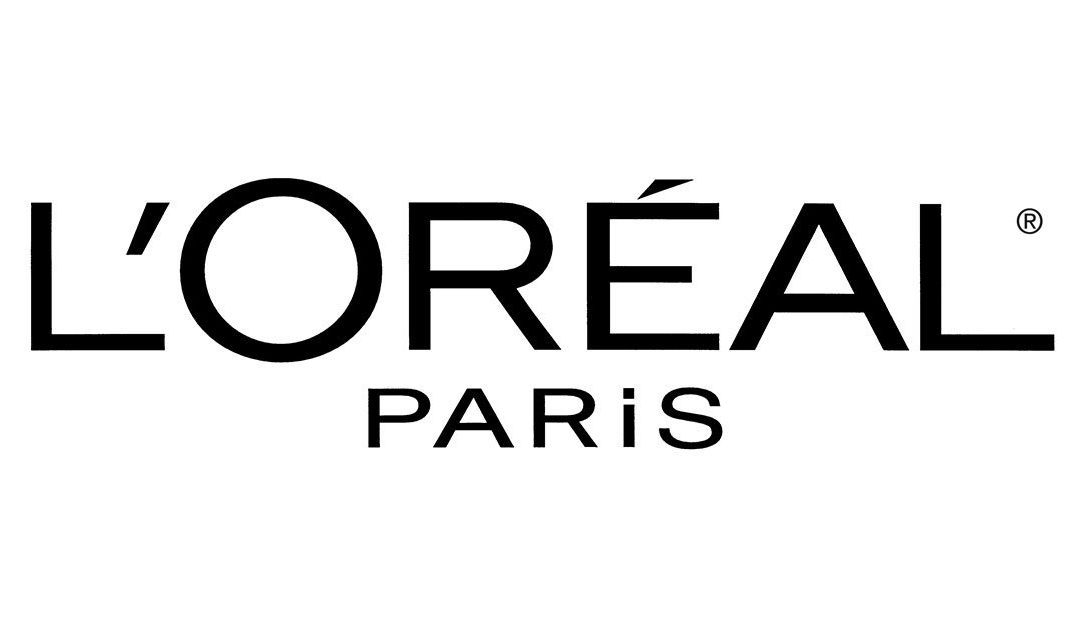
Best L’Oreal Products For Men
[Review] in 2022 written by nail expert Jess RowleyCheck out the results fast - here are our review winners[dica_divi_carousel item_width_tablet="400px" item_width_phone="345px"...

Best Neutrogena Skincare Products
[Review] in 2022 written by nail expert Jess RowleyCheck out the results fast - here are our review winners[dica_divi_carousel item_width_tablet="400px" item_width_phone="345px"...
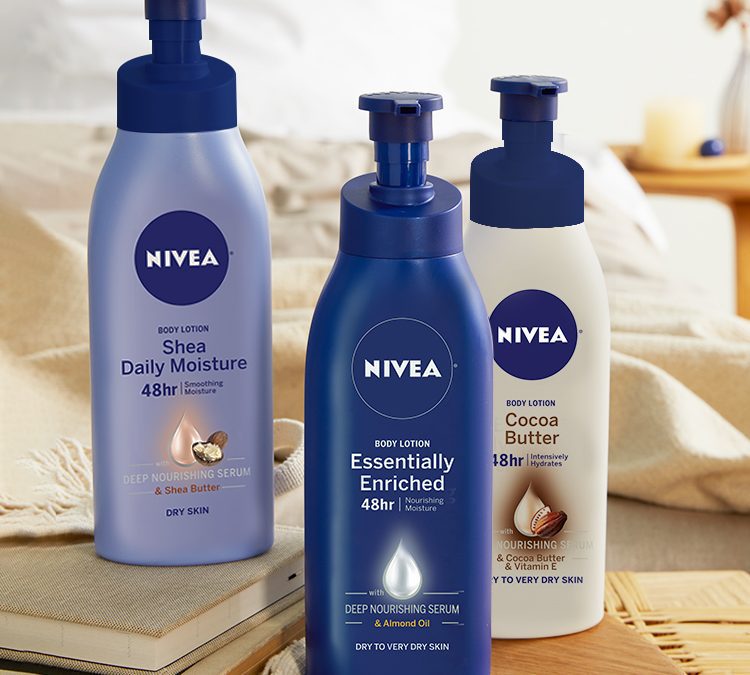
Best Nivea Products For Men
[Review] in 2022 written by nail expert Jess RowleyCheck out the results fast - here are our review winners[dica_divi_carousel item_width_tablet="400px" item_width_phone="345px"...
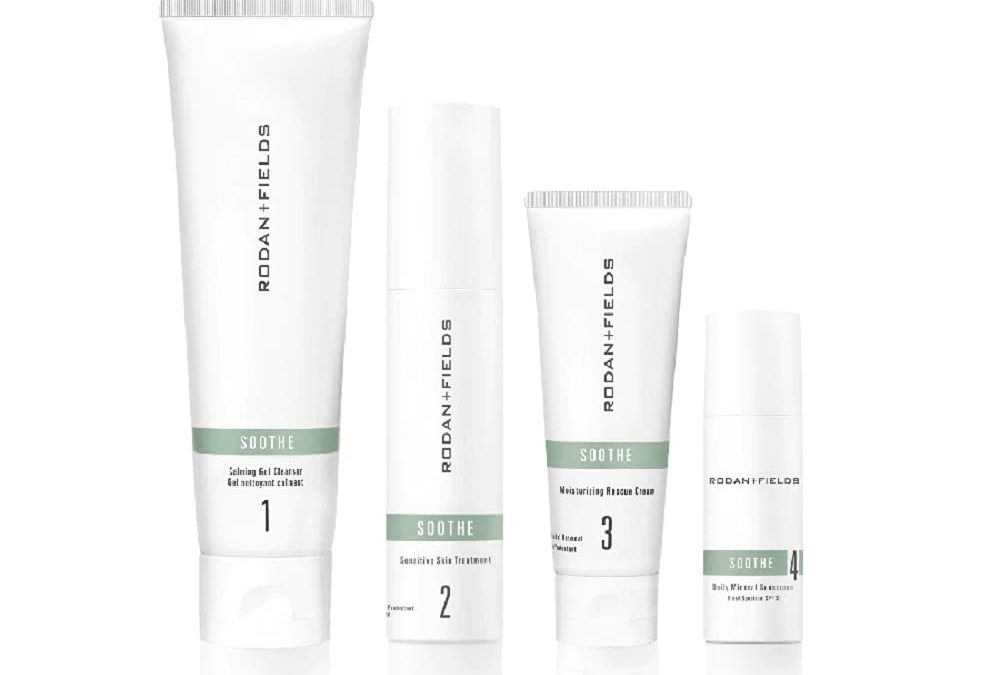
Best Rodan+ Fields Products
[Review] in 2022 written by nail expert Jess RowleyCheck out the results fast - here are our review winners[dica_divi_carousel item_width_tablet="400px" item_width_phone="345px"...
Related Post: Best Frizz Control For Curly Hair

